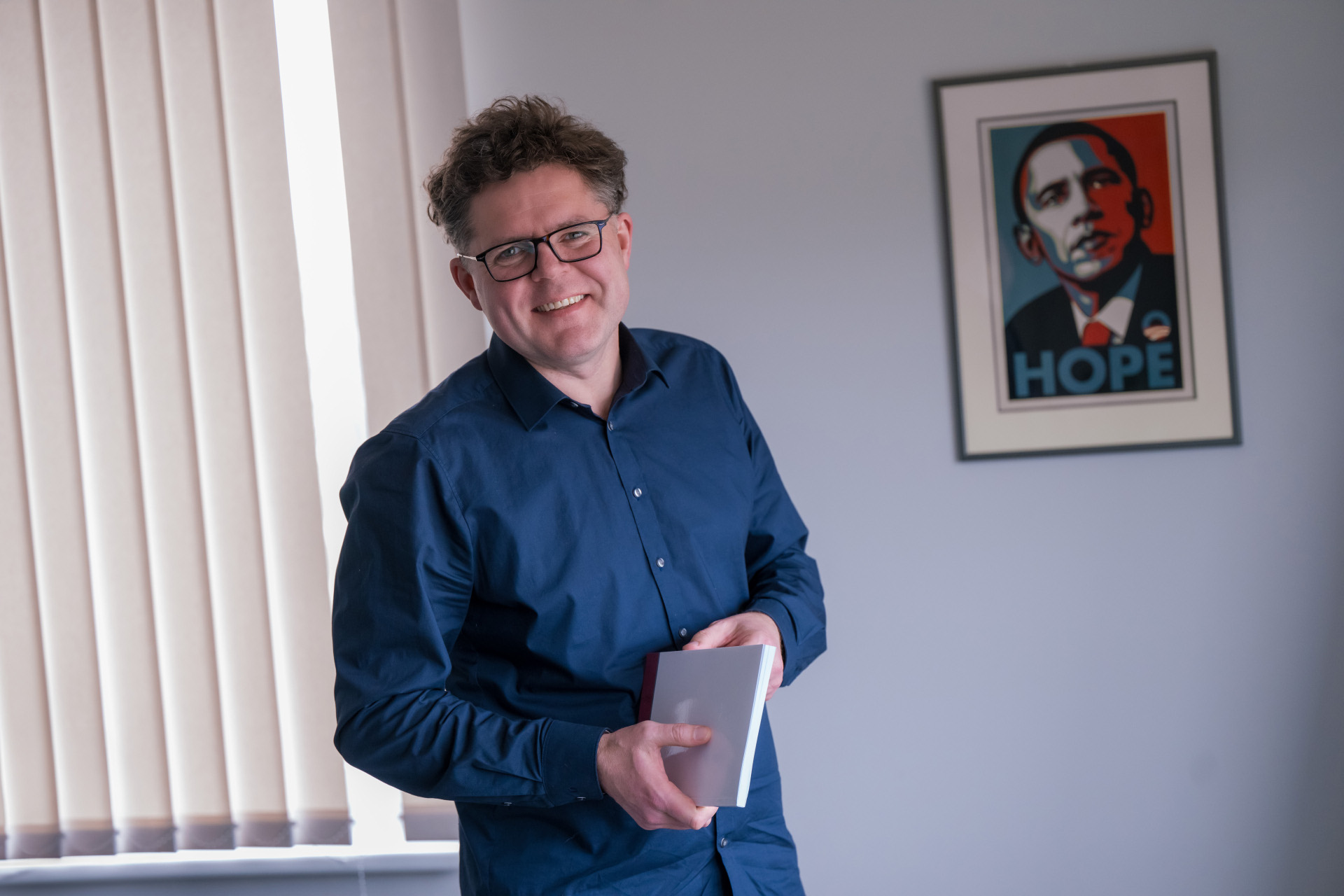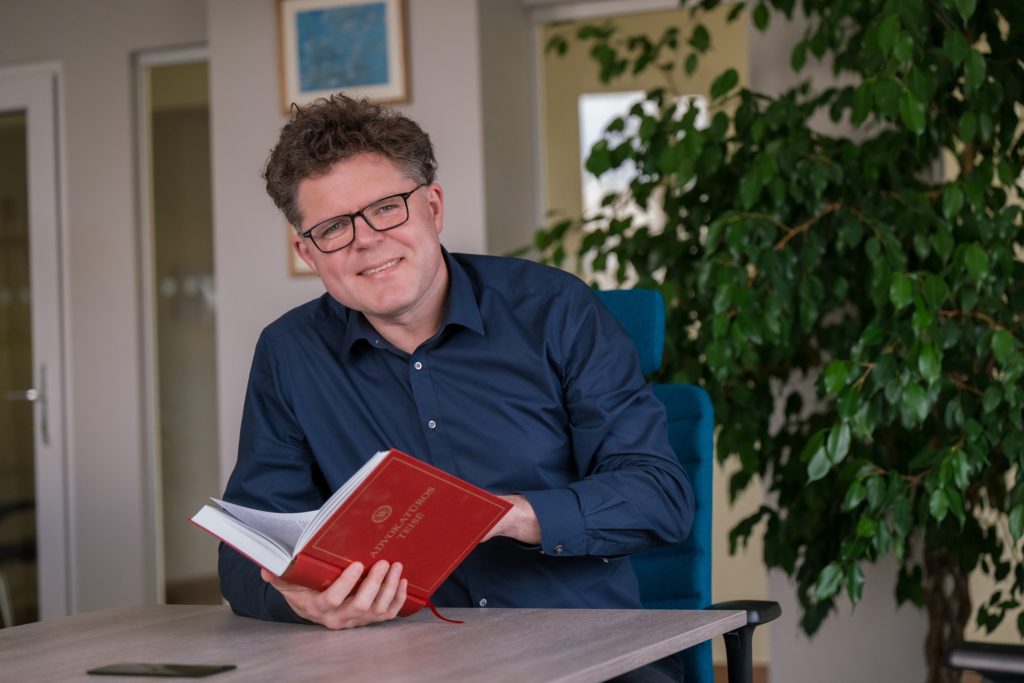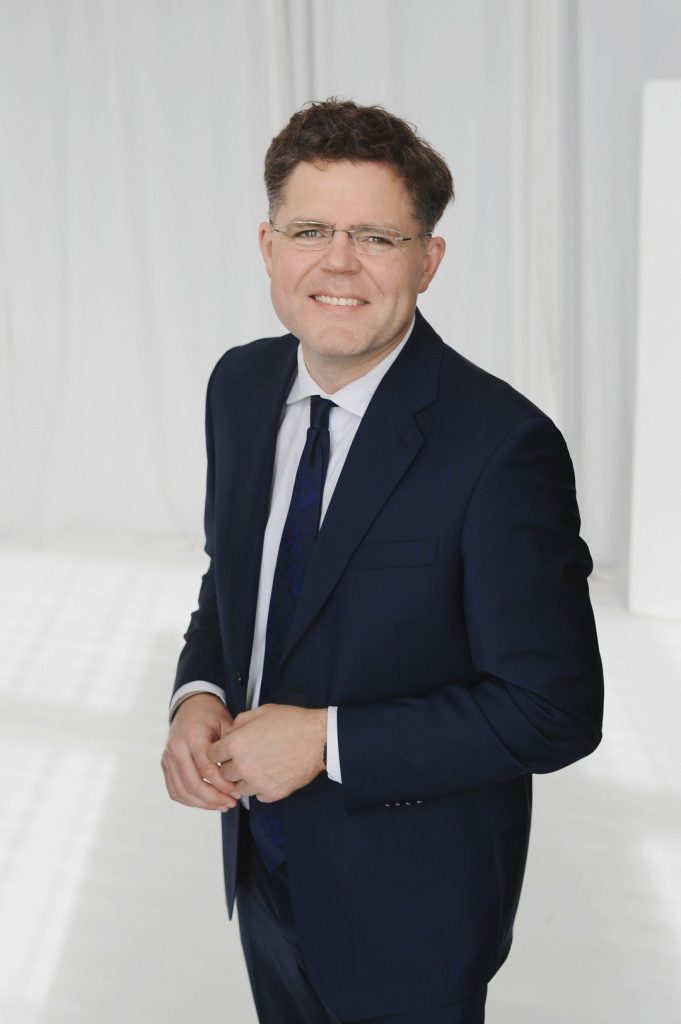VMU Teacher Dr. Mindaugas Šimonis Shared Thoughts on Legal Profession

“[My] choice of the legal profession was profoundly influenced by the historic period of Lithuania’s restoration of independence and the building of the young state. From a young age, I actively participated alongside my parents in various liberation events from the Soviet Union. The spirit of revival that prevailed at the Sąjūdis rallies and congresses, the various liberation events — from volunteer work in restoring Basanavičius’ birthplace to the Rock Marches throughout Lithuania, the very act of independence restoration, and finally, the events of January 13th, when, at only fourteen, I spent a week by the bonfires protecting Lithuania’s freedom — these experiences ultimately shaped my inner attitudes towards choosing a profession linked to state and human rights, and the aspiration to dedicate my life to the well-being of the Lithuanian state and nation,” says Dr. Mindaugas Šimonis, who has worked in the Lithuanian court system for twenty years, and is currently an attorney-at-law and lectures at the Faculty of Law of Vytautas Magnus University (VMU).
The attorney explained that after finishing school, he had to choose between law and political science, ultimately selecting law because it is a fundamental social science that offers a wide range of career opportunities upon completion. These opportunities range from diplomatic service, work in state governance, law enforcement, and justice institutions, as well as practising at the bar, to engaging in activities within a vast and highly diverse private sector. Šimonis hoped his profession would serve as a gateway through which he could contribute to both the building of the young Lithuanian state and significant social processes.
Contributed to the reform of the judicial system
The attorney recalls that the five years he spent working at the Supreme Court of Lithuania (SCL) two decades ago were among the most interesting and creative professional stages for him as a young legal professional. He worked extensively with authoritative, long-standing judges and law professors who were shaping the foundations of the law of the reviving state, responsibly prepared draft decisions for the Court of Cassation, and contributed to the formation of judicial precedents, which became particularly important following the new Civil Code of the Republic of Lithuania that entered into force on 2 July 2001. Working at the Supreme Court provided excellent opportunities to acquire professional wisdom and culture, as well as the ability to interpret, professionally develop, and elucidate the law, which is essential for the legal profession.
Later, when leading the courts and with extensive experience working in the legal system, the lawyer contributed to the first reform of the judicial system by merging district courts, creating court administration instruments, introducing new legal institutes in the courts’ work, and contributing to ensuring transparency, independence, and impartiality of courts and judges to achieve the quality of justice. Dr. Šimonis gained extensive international experience through traineeships and conferences in the Netherlands, Germany, Sweden, and other countries, serving as a Council of Europe expert in justice in Croatia and Georgia, and conducting training in the Czech Republic, Poland, and even Tunisia in collaboration with US judges. According to the attorney, this experience makes it easier to compare differences between legal systems and cultures in different countries and to identify areas where Lithuania still needs to improve.

A lack of compassion for human rights
Sharing his thoughts on the current state of human rights and the state governance and law enforcement institutions in Lithuania, Dr. Šimonis notes that much work remains to achieve the standards of a modern Western state and society, characterised by high respect for individual autonomy, compassion towards individual human rights, and attention to legal culture and professional ethics.
“Surprisingly, there are still many remnants of the Soviet era, where authorities and their representatives do not serve the people, assist in exercising their rights, or safeguard their legitimate interests, but, on the contrary, often bureaucratically constrain them by performing their duties in a narrow manner. Right beside these, there are institutions where human rights and the principles of sound public administration are merely legal declarations, which are, in reality, completely disregarded. I believe the entire legal community must actively contribute to eradicating these negative phenomena, which harm the development of the Lithuanian state and lead to people’s distrust of public authorities. When cases of abuse by public officials and civil servants are identified by courts or control authorities, responses should aim for systemic change rather than just resolving individual situations. In Lithuania, I see a lack of activism within the legal community aimed at enhancing the efficiency of the legal system, compassion for individual human rights, and rejection of injustice,” says Dr. Šimonis.

High standards for law students
According to Šimonis, a modern lawyer must responsibly engage in continuous professional development – in this profession, it is crucial to constantly learn, critically analyse each situation anew, applying legal regulations on an individual basis, consider the principles and doctrine of law, and keep abreast of ever-changing legislation. “The work of a lawyer has significant implications for society and the state; thus, the professionals in this field must be meticulous, caring, responsible, well-educated, knowledgeable in a wide range of areas, with a penchant for learning and a commitment to honest service,” he notes.
He asserts that university admissions to law studies must take into account the specific requirements of the legal profession and should, therefore, only consider applicants with very good or at least good grades across various subjects. Law students themselves should be ambitious and inclined towards in-depth legal studies, where the primary focus must be on the study process itself.
“When visiting foreign universities, it’s the motivated and responsible students who study independently in university libraries and devote their entire attention exclusively to the study process, who truly stand out. In Lithuania, I observe a concerning trend, where students often fail to even read all the textbook material, many skip lectures, and generally do not pay enough attention to their studies. Law studies are inherently complex, demanding both time and attention. On the one hand, they require precise, logical thinking and the ability to assess causal links between various phenomena and laws. On the other hand, a lawyer must fluently articulate thoughts both orally and in writing, as effective legal work largely depends on fluent communication,” Dr. Šimonis emphasised the versatility of the profession, adding that many skills in the field of law only come with experience.

Must feel a sense of responsibility to society
According to Dr. Šimonis, a lawyer must feel a sense of responsibility to society – to protect the public interest and the common good, to ensure that the rights of the vulnerable are protected and that society is a safe place where individuals are confident they will receive adequate legal assistance when needed. Core values include respect for human rights, the rule of law and integrity, professionalism, and diligence. However, modern lawyers are confronted with numerous dilemmas and challenges, one of which is how to balance the heavy workload and pace of their work with maintaining the professional quality of their legal practice and upholding professional values.
“Lawyers must assume responsibility for the effectiveness of the legal system, extending beyond their daily tasks to contribute to systemic change within the state. The legal profession is complex in nature, as it usually deals with difficult societal, business, or personal issues. A lawyer must be trustworthy, open-minded, courageous, and wise in their work. Professional competence, continuous improvement, and an increased sense of responsibility and care are crucial. Taking the time to listen to and understand a person’s individual situation is essential, as any detail might determine the final legal conclusion, taking into account different interests and human rights,” the attorney notes.
According to him, a lawyer’s work must inspire confidence in both the legal system and the state. In a pluralistic society, where diverse people and worldviews coexist, developing tolerance for differing views is necessary. Lawyers must ensure harmony among these views and professionally identify the most effective and efficient ways to address problems.

The use of technology is inevitable
As with other professions, lawyers have significantly benefited from new technologies, which have made it possible to perform certain tasks more quickly and efficiently: accessing and processing various data in registries, collecting evidence, conducting complex technical and other expert analyses, investigating various complex events, finding the best legal precedents and scientific data, and adapting them to individual cases.
However, with the advancement of technology, new challenges emerge, such as the challenge of patenting new technologies themselves, requiring legal proof of how one technology differs from another. Collaborating with experts from other disciplines is often necessary, especially when specific scientific and professional knowledge, as well as high competencies in other professional fields, are needed.
“The use of technology is inevitable in a lawyer’s work, enabling the collection, thorough investigation, and evaluation of significantly important evidence in a wide range of legal proceedings. A lawyer must be technologically literate and adept at its use, as it is essential in everyday practice,” says Dr. Šimonis
VMU – distinguished by its interdisciplinarity
The lawyer, who completed his doctoral studies at Vytautas Magnus University (VMU) and dedicated his dissertation to the Quality of Justice, appreciates the additional scientific competencies acquired and the opportunity to collaborate with other scientists in his professional activities and employ law and other sciences in addressing problems relevant to the practice.
“Interacting with colleagues from VMU has broadened my scientific perspective, as this university is distinguished by its interdisciplinarity and openness of scientific thought. My doctoral studies at VMU have significantly contributed to employing scientific methods in legal practice, as legal reasoning should not be chaotic, but a precise and consistent process, grounded in a methodologically sound interpretation and application of law. Continuing university studies have enhanced my ability to manage complex processes, both in my former role as a judge and my current practice as an attorney,” says Dr. Mindaugas Šimonis.












